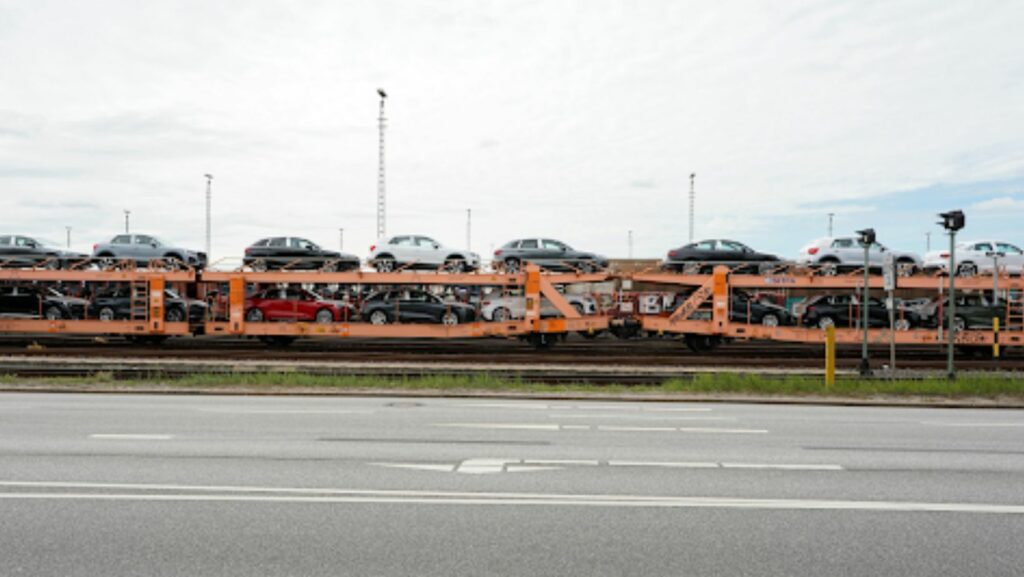Want to ship your car and never get scammed again?
Thousands of Americans ship their vehicles cross country every year. Whether it’s for a work relocation, purchasing a vehicle out-of-state, or moving to a new city…
Here’s the problem…
The auto transport industry is full of brokers and carriers that make huge promises and deliver massive headaches. With billions in industry revenue pouring through the sector every year, there are plenty of bad actors looking for their share.
Without the right knowledge, you’ll end up overpaying, experiencing unnecessary delays, or worst of all, getting scammed out of thousands of dollars.
In this comprehensive guide, I’ll show you EXACTLY how to choose reliable auto transport services that actually deliver on their promises. The same tips and strategies that smart consumers are using to avoid the most common mistakes while finding exceptional auto shipping services. Ready to learn how?
Let’s jump right in!
What You’ll Discover:
- Why Most Auto Transport Companies Can’t Be Trusted
- The Red Flags That Scream “Stay Away”
- How to Find Legitimate Auto Transport Services
- 5 Essential Questions to Ask Before Booking
Why Most Auto Transport Companies Can’t Be Trusted
The auto transport industry has a dirty little secret…
Most auto transport “companies” you find online are not actually moving your vehicle. Instead, they are brokers. And get this: FMCSA has reported a significant rise in complaints against auto transporters and brokers over the years.
But wait, here’s what makes it even worse:
Many of these brokers operate with little to no oversight. They take your deposit, contact any carrier they can find offering the cheapest rate, and then disappear when issues inevitably come up. With millions of registered carriers in the US alone, separating quality from scams is a daunting task.
Think about it this way…
91.7% of households own a vehicle while 22.1% of those households own three or more vehicles. The result is a huge market with a high potential for scams.
Broker vs. Carrier
Did you know that most consumers have a hard time understanding the difference between brokers and actual carriers? Brokers arrange for auto transport while carriers physically move your car.
Brokerage services aren’t a bad thing… IF they are a legitimate brokerage. But many are not.
Here’s what you should know:
- You will likely get a low quote from a “transport company”
- They will take your deposit
- They will sell your job to the cheapest bidder
- The actual carrier arrives on the scene asking for more money
- You have no recourse
Sound frustrating? Good. Let’s learn how to avoid the problem.
The Red Flags That Scream “Stay Away”
Before we dive into how to find good companies, let’s go over the obvious red flags. If a company falls into one of these categories, they will likely waste your time, cost you thousands, or both:
Door-to-Door Sales Tactic
High pressure sales calls from unscrupulous auto transport companies are on the rise. Legit auto transport companies don’t solicit customers via unsolicited phone calls. They focus on people who seek them out.

If you get a cold call from an auto transport company offering to move your vehicle at a special rate “today” just “sign here and give me a call” then HANG UP. A real company will not pressure you this way.
Low Quotes
Too good to be true? You got it. Remember, with an expected driver shortage of over 100,000 truckers in 2025 there’s no chance shipping prices will get cheaper anytime soon.
Unrealistically low prices = shoddy service.
No Physical Address or DOT Number
Every interstate auto transport company must have:
- A valid USDOT number
- An MC (Motor Carrier) number
- A physical business address
Period.
Do your due diligence and verify these upfront. Scammers often provide fake phone numbers, addresses, and DOT numbers, making it appear like a local company.
Requests Large Upfront Payments
Reputable companies typically only require a small downpayment (10-20%) with the balance due upon delivery. Full upfront payment requested =/= professional company.
Doesn’t Provide Insurance Information
Auto transport companies are required to have insurance and will have no problem providing proof of coverage. Any attempt at evasion when it comes to insurance is a red flag. Walk away.
How to Find Legitimate Auto Transport Services
Now for the good stuff. Let’s go over how to identify legitimate auto transport services in this highly deceptive industry:
Step 1: FMCSA Verification
Start with FMCSA verification for any company you’re considering. Their SAFER system is a free tool that allows you to verify the following information:
- Operating authority
- Insurance status
- Safety rating
- Complaint history
This eliminates 90% of problems right out of the gate.
Step 2: Look For Above Average Service
When narrowing down your selection of companies to work with, focus on companies with an established track record and quality auto shipping services from years of experience in the industry.
When evaluating companies ask yourself:
- How long have they been in business?
- What are their safety ratings?
- Do they have solid reputations?
Step 3: Check Multiple Sources
Check multiple sources of reviews and ratings. Better Business Bureau, Google reviews, Yelp, auto transport-specific review sites. Look for patterns in reviews. One bad review in a sea of great reviews isn’t concerning.
If a company has a history of charging more than originally quoted and other similar complaints, move on.
Step 4: Verify Insurance Coverage
Ask the company for a certificate of insurance, then contact their insurer directly to verify coverage. Do NOT simply take their word for it.
Step 5: Get Detailed Written Quotes
Get quotes in writing before signing anything. The contract should clearly outline pickup/delivery timeframes, total price, insurance coverage and damage claim procedures.
5 Essential Questions to Ask Before Booking
Before hiring an auto transport company, ask these 5 questions to determine if they’re right for you:
1. “Are You A Broker Or A Carrier?”
Not a trick question. There’s no wrong answer, but it’s good to know who you are dealing with right off the bat. If a broker, inquire about their carrier vetting process.
2. “What’s Included In This Price?”
Get a detailed breakdown of costs. Ask for additional fees for:
- Oversize vehicles
- Remote locations
- Expedited service
- Fuel surcharges, etc.
3. “What’s Your Claims Process?”
Ask about their damage claims process before you need to file one. A company that dodges this question probably does not have a good process.
4. “Can I Speak With Previous Customers?”
Any reputable company should be able to connect you with references or past customers. If they can’t, beware.
5. “What Happens If You Can’t Meet The Pickup Date?”
Industry capacity is tight, so delays are possible. Ask about their policy on missed pickup dates to see how they handle these situations.
The Smart Consumer’s Checklist
Before you sign any paperwork, double check you can tick these boxes:
✓ Verified USDOT and MC numbers through FMCSA ✓ Verified insurance coverage ✓ Received written contract with full breakdown of costs and other details ✓ Did research on company reviews and ratings ✓ Know whether dealing with broker or actual carrier
What to Expect During Transport
The transport process is a time to set proper expectations and avoid most customer service headaches:
- Detailed vehicle inspection before pickup
- Shipments usually take 7-14 days for cross-country moves
- Periodic updates and location tracking
- Weather delays and DOT regulations may cause hold ups
- Final vehicle inspection before delivery sign-off
Wrapping It All Together
I can’t emphasize this enough…
The most important part of choosing reliable auto transport services is eliminating as many potential problems as possible by doing your homework upfront.
The industry is only going to grow as more and more people realize they can ship their vehicles instead of driving. But with the market set to exceed $11.5 billion by 2025, the market is unlikely to change and will remain ripe for abuse in many cases.
Until then, use this guide as a blueprint for avoiding the bad actors and finding trustworthy companies that actually deliver as promised. Trust me, your wallet will thank you in the long run.
Focus on legitimate, insured carriers with proven track records and the few bad apples in the market will stick out like a sore thumb.

